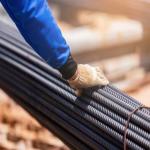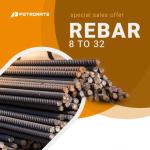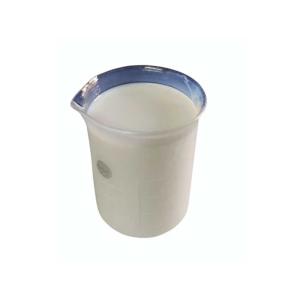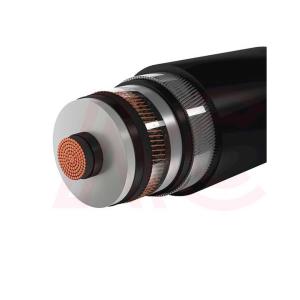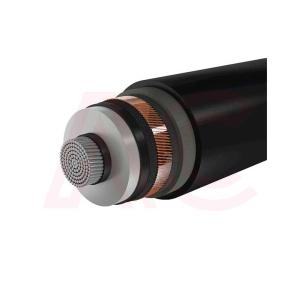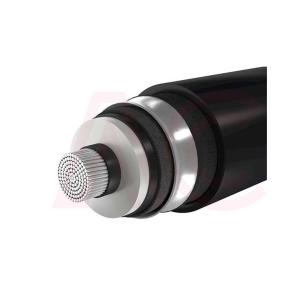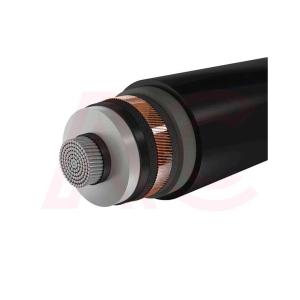High-Quality Rebar Export | Bulk Orders, Best Prices, All Sizes Available
- Rebar is a vital construction material used to reinforce and stabilize structures due to its high tensile strength.
- Different types, such as ribbed, plain, and corrosion-resistant steel rebar, are available to suit various project needs.
- Rebar comes in multiple sizes (T8 to T40) and meets international standards like BS4449, ASTM A615, and GOST R52544.
- Factors like raw material costs, inflation, and market demand influence rebar pricing.
- Bulk rebar exports are mainly shipped to countries like Iraq, Afghanistan, Türkiye, and the UAE, offering cost efficiency and quality consistency.
Rebar Export in Bulk Orders | Competitive Prices | Wide Range of Types and Sizes
Rebar, or reinforcing bar, is an essential component in the construction industry, playing a critical role in strengthening and stabilizing structures. Due to its high tensile strength, rebar is capable of resisting the pressure and stresses exerted on concrete and other building materials, ensuring the durability and longevity of structures such as bridges, high-rise buildings, tunnels, and industrial complexes.
For construction projects requiring dependable quality and large quantities, sourcing rebar in bulk ensures both cost-effectiveness and consistency across different phases of the project.
Types of Rebar Available for Export
Understanding the types of rebar available is crucial when selecting the appropriate reinforcement material for your construction needs. Different types of rebar are suited to different applications depending on environmental conditions, structural requirements, and project specifications.
Ribbed Rebar
Ribbed rebar features transverse and longitudinal treads along its surface. These treads are designed to improve the adhesion between the rebar and concrete, greatly enhancing the strength of the structure. Ribbed rebar is particularly ideal for high-load and critical infrastructure projects, where the bond between steel and concrete must be maximized to withstand significant stresses.
Plain (Simple) Rebar
Plain rebar has a smooth surface without any ribs or deformations. It is typically used in applications where rebar will be subjected to minimal stress or where welding is required. Plain rebar is suitable for light structures, temporary constructions, and reinforcing connections.
Steel Rebar (Corrosion-Resistant)
Steel rebar is manufactured to withstand harsh environmental conditions such as high humidity, exposure to chemicals, or saline environments like marine structures. This type of rebar has exceptional resistance to corrosion, ensuring the structural integrity of projects in challenging conditions over an extended period.
Size Options for Exported Rebar
| Type | Diameter |
|---|---|
| T8 | 8 mm |
| T10 | 10 mm |
| T12 | 12 mm |
| T16 | 16 mm |
| T20 | 20 mm |
| T25 | 25 mm |
| T32 | 32 mm |
| T40 | 40 mm |
All rebar sizes can be supplied according to the specific needs of projects, with options for custom lengths, cutting, bundling, and packaging for ease of transport and handling at the destination.
Rebar Standards and Grades
| Standard | Grade/Class |
|---|---|
| BS4449:2005 | Grade B500B |
| EN10080:2010 | Grade B500B |
| DIN 488-2:2009-08 | Grade B500B |
| ASTM A615/615M | Grade 60 |
| GOST R52544:2006 | Grade A500C |
| GOST 10884:94 | At500C |
| DSTU 3760:06 | A500C |
| TS708:2016 | B420C / B420B / S420 |
| IS 1786:2008 | Fe500 / Fe500D |
The adherence to these internationally recognized standards guarantees that the rebar supplied meets the highest levels of mechanical performance, safety, and durability.
Analysis of Factors Influencing Rebar Prices
| Factor | Impact on Price |
|---|---|
| Price of Raw Materials | The cost of primary metals, especially iron ore and scrap metal, directly influences rebar production costs. An increase in raw material prices results in a corresponding rise in rebar prices. |
| Inflation Rate | High inflation rates can elevate production, labor, and transportation costs, thereby impacting the final price of rebar. |
| Market Supply and Demand | During periods of high construction activity or supply shortages, rebar prices tend to surge. Conversely, when demand falls, prices may stabilize or decrease. |
| Global and Regional Market Trends | Economic growth in key markets, government infrastructure projects, and geopolitical developments significantly affect rebar supply chains and pricing. |
Given the constant changes in global and local economic conditions, it is advisable to regularly monitor market trends and secure supply contracts promptly to lock in favorable pricing.
Primary Export Destinations for Rebar
Rebar exports are predominantly directed to regions where construction and infrastructure development are rapidly expanding. The main destinations for rebar exports include:
- Iraq
- Afghanistan
- Turkmenistan
- Türkiye
- Qatar
- United Arab Emirates
- Pakistan
- Oman
These countries represent high-demand markets where infrastructure projects, residential developments, and industrial expansions are driving the need for reliable, high-quality construction materials.
Advantages of Bulk Ordering Rebar
There are numerous advantages to sourcing rebar in bulk quantities:
- Cost Savings: Bulk purchasing reduces per-unit costs and minimizes overheads related to procurement.
- Consistency in Quality: Sourcing all materials from a single supplier ensures consistent quality throughout the project lifecycle.
- Customization: Bulk orders allow for customization in sizing, bundling, and shipping arrangements.
- Supply Chain Efficiency: Bulk deliveries streamline logistics and reduce the risk of project delays caused by material shortages.
Timely planning and engaging with a reliable supplier can significantly enhance project execution and profitability.
Conclusion
Rebar is a critical element in ensuring the strength, stability, and longevity of modern structures. Choosing the right type of rebar, understanding the current market conditions, and working with reputable suppliers are essential steps toward successful project completion.
Those involved in large-scale construction projects, infrastructure development, and industrial manufacturing can benefit significantly from sourcing rebar in bulk, at competitive rates, and according to international standards. By selecting the right products tailored to project-specific needs, construction professionals can ensure both the safety and durability of their structures for generations to come.
For updated pricing, detailed specifications, and export arrangements, potential buyers are encouraged to engage directly with reputable suppliers and professional consultants who specialize in international steel trade.
Add your review
Your email address will not be published. Required fields are marked *
Please login to write review!
Looks like there are no reviews yet.

by Abrisham Road
Inspection group .co

Petrorate Trading Group
- Store rating
0
- Staff
10
- Offers
> 100
- Products
19


